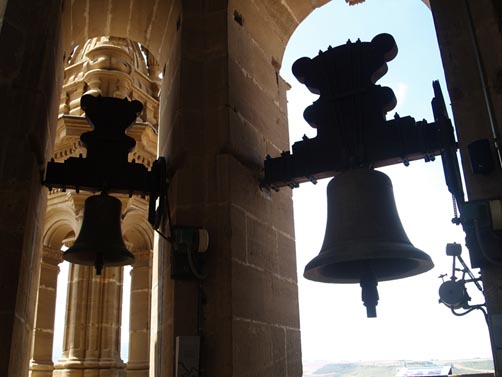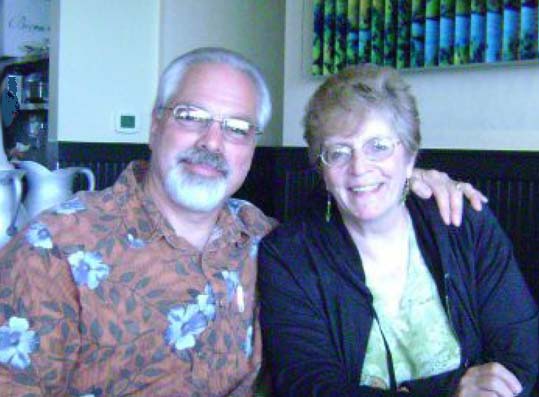Sermon 87

Safely at Home:
For the Funeral of Sandra Ann Marshall
Christ the King Lutheran Church
Goldendale, Washington
December 26, 2015
ON THIS SECOND DAY OF CHRISTMAS
(and Saint Stephen’s Day) we gather here to pay our last respects to a
child of God, our sister in Christ, Sandee Marshall. We could have
stayed home and basked in the glory that is Christmas Day, delighting in
our favorite gifts we found under our Christmas trees, but we haven’t.
Instead we are here. Some of us have come a short distance to be here,
while others of us have traveled great distances and over snowy roads to
be here today.
But note also that we are here in a church.
We have not gathered in some bar, or a community center, or some other
public meeting place. No, we are here in this church because Sandee was
a member here. But more than that, we are here because she believed in
the message of this church. She was a Christian.
Sandee’s Faith
But what did she believe? And why are we here to celebrate that? We
could tell stories about her—and later at the reception we no doubt
will. But for now in this church we will thank God for her life by
celebrating her faith. So here are a few dozen Bible verses about her
faith:
God is love (1 John 4:8), but only Jesus makes
this clear to us (Matthew 11:27)—because of all the bad things
that happen which weaken and disable our faith (Job 30:11-31;
Matthew 13:21). Jesus does this when he dies on the Cross (1
John 4:10) to save us from the punishments of hell which we have
earned because of our disobedience (John 3:36), and opens the
windows of heaven (Hebrews 10:20) by bearing our sins (1 Peter
2:24) when we believe and trust in him (Romans 3:25), and do
good works in his name (Matthew 7:19; Galatians 5:25; James
2:26). Only then will we know that God loves us—even though,
because of sin, we deserve nothing good (Romans 5:8). Most,
however, reject this because they are offended by it (Matthew
7:14, 11:6, 22:14; John 6:61). And so if we are to have any
faith at all, God must give it to us (Ephesians 2:8)—which
happens when we hear the holy words of Scripture preached
(Romans 10:17). As a result, those who believe, when they die,
are where Jesus is (John 14:3; 2 Corinthians 4:14)—after their
70–80 years, more or less, here on earth, are done (Psalm
90:10). This new life after death is eternal (John 3:16), but
also real, taking place on a new earth (2 Peter 3:13). There we
will have wonderful personal experiences—filled with nothing but
joy and peace (Revelation 21:4), especially in contrast to
hell—that place of eternal torment (Luke 16:28; 2 Thessalonians
1:9). We will know people in heaven whom we knew on earth (Luke
16:23)—people who also followed Jesus, in the great company of
saints (Hebrews 12:1). And in heaven there will also be feasting
and praise—seeing Jesus face to face among those who have been
saved (Revelation 22:4, 19:6–9). This will be far better than
anything here on earth (Acts 7:55-56; Hebrews 11:16,
13:14)—something worth longing for now, long before we die
(Philippians 1:23), which leaves those who don’t, most to be
pitied (1 Corinthians 15:19).
Now Sandee didn’t leave this summary of her faith laying around. That’s
why God gave me to her as her brother-in-law! I keep track of such
things. I knew her for over twenty-five years and we talked about the
faith many times and I kept track of what mattered to her. And what I
have presented here sizes that up pretty well, I would say.
Two Powerful Books
But notice how the summary ends—with those not believing being most to
be pitied. And note in the middle of my collection of Bible verses about
the many who are offended by this message, and so only a few are left to
believe in it. Now what shall we say about that?
Well, that leads
me to my special guests for today—the professors Tipler and Wahlberg. I
thought it would be a good idea to have them here today so you could see
that what I have summarized as Sandee’s faith is indeed true. With them
here, you wouldn’t have to listen to some two-bit preacher spouting off
about grandiose matters. No, you could instead listen to real
intellectual authorities.
So take Professor
Frank J. Tipler, from the prestigious Tulane University in New
Orleans—who also holds an undergraduate degree from that great place of
learning in Boston, M. I. T. I hoped he would come, but the warmer
weather down south kept him there. But, in his place, we have his
magisterial work, The Physics of
Immortality: Modern Cosmology, God and the Resurrection of the Dead
(1994). In this book he argues that the physical properties of the
universe show that what the Bible says about life after death is true.
For the very laws of physics require there to be a future restoration of
the disintegrated matter of our lives, in another world with a new, but
similar, sentient life for us. This twenty year old book is breath
taking and has engendered debate throughout the world of science, for
many years now. It’s nothing short of astounding!
Then there is
also the newer book by Professor Mats Wahlberg,
Revelation as Testimony: A
Philosophical–Theological Study (2014). But Wahlberg lives and
teaches all the way over in Sweden, where the weather is snowier than
ours here, so he couldn’t make it either. But in his new book, he shows
from far away—by employing the principle of doxastic responsibility—that
the Bible is a unique book that deserves special treatment. Due to the
literary priority of falsification over verification, the Bible stands
as a word from God unlike that found anywhere else. This book is
garnering lots of attention and rightly so. For it makes a compelling
case for the truth of the Bible, quite apart from any faith claims on
its behalf. Wahlberg shows why the Bible is greater than the great
literature of Shakespeare and Melville, for instance. And he is also a
very winsome fellow. It’s worth taking some time to listen to his hour
long interview, Episode 30 on The
Christian Humanist radio show, online. He’s fascinating.
A Contested Faith
Now when thinking about these two professors and their wonderful books,
I was reminded of the 1977, Oscar winning Woody Allen movie,
Annie Hall. Toward the end of
that movie is my favorite scene where Woody Allen is standing in line
with Diane Keaton to see a movie, and they are listening to a man ahead
of them talking about the famous social critic, Marshall McLuhan
(1911–1980), and his 1967 award winning book,
The Medium is the Message.
Allen thinks this guy is bragging about how much he knows. He would like
to shut him up and put him in his place, but alas, he can’t. So he
fantasizes about Marshall McLuhan himself (no family relation here, by
the way) showing up to put this guy in his place, which he does. After
that, Allen laments: “Boy, if life were only like this!”
The more I thought about this scene in
regard to my own fantasy about defending Sandee’s faith at her very own
funeral, the more I realized that Christianity isn’t like that either!
No, it is instead contested because it’s contestable. It’s a fight,
after all (1 Timothy 6:12). It doesn’t bowl over all opponents and
settle matters once and for all. No, it’s an ongoing contest that
continues until the end of the world (Matthew 24:13). Martin Luther
(1483–1546) knew that—believing that it’s actually the struggle with
unbelief that keeps faith alive (Sermons
of Martin Luther, ed. J. N. Lenker, 1:274, 3:282, 5:267, 300;
Luther’s Works 45:347). And
so rather than being cocky victors, Christians are sympathetic and
persistent listeners. We want to know why unbelievers don’t like what
they hear from us. And we want them to consider other options. Therefore
we stay in the fray—talking up a storm, if you will. To be like this,
Christians must be long suffering, and never impatient people (Romans
12:12; 1 Thessalonians 5:15; James 5:7).
Preached into Heaven
Because of that, we aren’t obsessed with forcing faith on one another.
We know that arguments don’t produce faith, even though we take up
conversations left and right, with no end in sight [Jennifer Faust, “Can
Religious Arguments Persuade?”
International Journal for Philosophy of Religion 63:1 (2008) 71–86].
And that’s because faith comes as a gift when we hear Christianity
preached (Romans 10:17). It’s the force of preaching that gets us over
the hump of hesitancy and disregard and even disdain. You would think
the sermon wouldn’t be a very good vehicle for that. You would think the
give-and-take of a classroom, or a one-on-one conversation would be
better. But not so.
I once had a
teacher—a Princeton University PhD—who said he had been preached into
the kingdom of heaven by his father’s sermons. He didn’t much like going
to church. He didn’t even like his father, if truth be told. But hearing
the Bible preached did something to him. It changed the way he weighed
matters. It even eventually, over many years, changed his mind
altogether—much to his surprise.
And we don’t get
just one shot at this either (Acts 26:28). Faith can take many years—or
it might never appear (Romans 9:18). It’s just not up to us and our
wiles. It’s rather sent from on high (James 1:17).
Going Home
So this is Sandee’s faith—properly understood. It sustained her all her
days. It taught her to quit relying on her own insights (Proverbs 3:5).
And it gave her a Savior of surpassing worth (Philippians 3:8). So when
she finally went down that valley of the shadow of death, she feared no
evil, for the Lord was with her (Psalm 23:4).
One of the last
things she said to her husband, Richard, was that she wanted to go to
heaven—she was ready to go home (Philippians 3:20). She was tired of
fighting her disease. She was worn out (2 Timothy 4:7). “I want to go
home,” she said. And she did. Amen.
(printed with some changes, as preached from notes)
